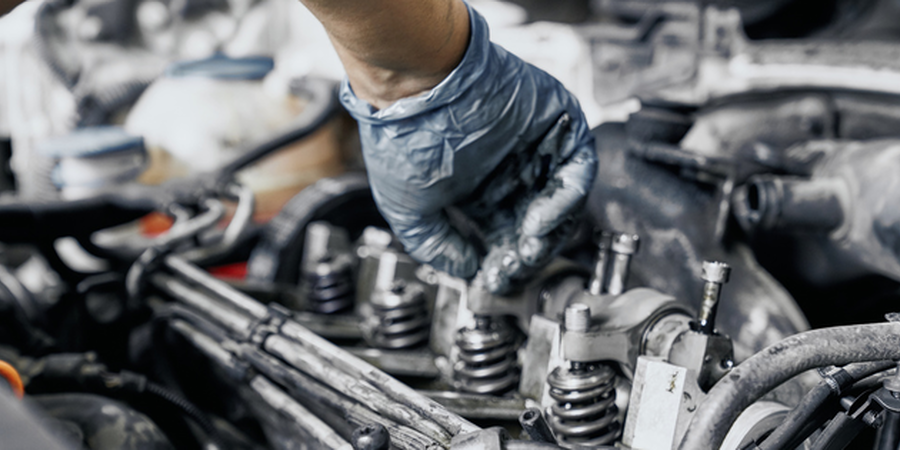Philadelphia, PA - A vehicle with a diesel engine can provide you with years of optimum performance. However, maintenance should be your priority if you want to keep it that way. If your vehicle's diesel engine is adequately maintained, it can cover more mileage than an average gas-powered engine. In effect, the lifespan can be longer as well.
Diesel Engine Maintenance
Maintaining a diesel engine requires meticulous care. Doing so ensures that all components run smoothly. Consider the maintenance of a diesel engine an investment. As you keep the parts in good shape, you save yourself the hassle of breakdowns and repairs. If a replacement is necessary, check out DPF Parts Direct and other similar providers to ensure a head start keeping your vehicle in good shape. Remember to give your diesel engine proper maintenance so it'll last for years. If you want to keep your diesel engine running optimally, here are several essential maintenance tips to keep in mind.
1. Routine Cleaning Of The Engine
Maintaining a regular cleaning routine for your engine is crucial to ensure a long lifespan. As a vehicle travels longer distances and treks over challenging terrain, expect the buildup of dust and dirt on the engine. The accumulation of debris on the engine can diminish its lifespan and fuel efficiency, which is the primary concern, especially among those eager to save on fuel expenses.
Proper care is relatively straightforward, but it's best to check the owner's manual before cleaning. It would help if you had a moist sponge, an old toothbrush, and a specialized degreaser.
Before cleaning, ensure the engine cools down first, and wear protective gear such as gloves and goggles. Remember that the grime buildup can lead to burns, rotting, and inefficiencies in your engine. Therefore, make sure to thoroughly flush and change the filters to maintain the cleanliness of your engine.
2. Inspect The Air Filter
If you're going to inspect under your vehicle's hood, inspect the air filter. In most vehicles, including those with diesel engines, the air filter is under the hood within the rectangular cold air collector box close to the engine compartment's front area.
The air filter can choke the engine when it has debris or dirt buildup. In such scenarios, the engine strains to utilize more fuel. Ideally, you need to replace the air filter once your vehicle reaches 12,000 miles. Another option is to have a professional inspect your engine if you notice an evident drop in power, poor acceleration, or increased wear.
3. Replace The Fuel Filters
A diesel engine is equipped with two fuel filters. The primary fuel filter is between the gas tank and the engine, while the secondary fuel filter is between the fuel injectors and the transfer pump. Since diesel is less refined, it's likely to soak up more water from condensation in the tank. As a result, most manufacturers create diesel engines comprising two fuel filters.
Once water particles are present, it can result in the stalling of your vehicle's engine, a drop in horsepower, and possible explosion of the fuel injectors.
To avoid these inconveniences, replace the fuel filters every 10,000 to 15,000 miles. Ideally, replace both the primary and secondary filters simultaneously to improve lifespan and efficiency greatly.
4. Pay Close Attention To The Radiator
The radiator is responsible for cooling the engine by transferring heat to the air. The coolant or antifreeze moves via the engine to pick up the heat during the cooling process. The hot coolant shifts back to the radiator, dispersing heat into the air. The freshly cooled antifreeze moves back to the engine, repeating the cycle.
It's crucial to note that a diesel engine will likely reach higher temperatures, resulting in overheating. Constant overheating can cause warping of the engine components, especially the gasket seals and cylinders, leading to engine failure.
A regular radiator exchange service is crucial, which involves pumping specialized cleaning fluid through the cooling system and radiator. Antifreeze is introduced to allow efficient cooling. It's best to undergo the procedure once your vehicle reaches 40,000 to 60,000 mileage. If you notice steam emanating from under the hood, leakage of orange or greenish-tinged fluid, or maple-like odor from the engine, get the radiator and cooling system checked immediately.
5. Conduct Regular Oil Change
As part of maintenance for a vehicle with a diesel engine, prioritize routine oil changes. Schedule an oil change after reaching 5,000 miles, but it can be a shorter interval depending on how you use your vehicle. Commercial or industrial uses such as towing will require frequent oil changes.
Final Thoughts
A vehicle with a diesel engine has its share of perks, such as fuel economy, long lifespan, and efficient performance. Considering these valuable maintenance pointers can keep your diesel engine in good shape for years. Regular maintenance should be a priority if you want to enjoy the benefits a diesel engine offers.


